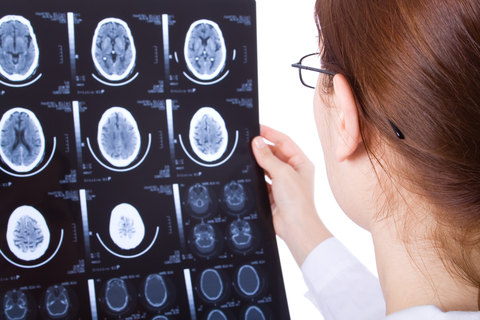Cardiff Met launches stroke research hub

As part of the Welsh Government’s five year strategy to tackle stroke and its often devastating effects, Cardiff Metropolitan University has launched Stroke Hub Wales (SHW), a resource facility that will support and coordinate research, innovation and education programmes across Wales.
Strokes are one of the top three causes of death and the leading cause of adult disability in Wales. Around seven thousand four hundred individuals will have a stroke in Wales each year, with sixty six thousand currently living with the after effects of a stroke. It is estimated however, that 70% of stroke cases could have been avoided, which is why the Welsh Government has proposed a five year delivery plan to tackle strokes in individuals of all ages.
The Welsh Government delivery plan, which has been refreshed in 2017, is a comprehensive, cross-sector, collaborative research strategy. The aim is to highlight all opportunities on offer in Wales, and create and fund an ambitious research environment.
Since the plan has been implemented, there has been an improvement in the treatment of strokes, but treatment options are still limited, which is why stroke research is vital. The research will help medical professionals understand the causes of strokes, resulting in the development of new treatments and a reduction in the number of individuals who suffer from strokes and the after effects.
Dr Phil Jones, Clinical Research lead for Wales, said “The stroke implementation group has recognised the importance of research into stroke and the need to support a robust, inclusive and productive environment for this to happen. Investing in stroke research and joint working with Cardiff Metropolitan University have been significant steps forward in realising these objectives.”
Associate Dean for Research at the School of Sport and Health Sciences at Cardiff Met, Professor Philip James, Academic lead and part of the team that helped devise and develop Stroke Hub Wales, said “Our aim is to create and sustain a collaborative, robust research infrastructure in Wales and help facilitate world-leading research and innovation in the prevention, diagnosis and treatment of stroke, thus saving lives and ultimately reducing the debilitating impact on stroke patients.”
The aim of SHW is to achieve a step change in high impact stroke research for the benefit of the health, wellbeing and prosperity of people in Wales. The hub is hosted by Cardiff Metropolitan but will act as a resource for researchers, clinicians and allied health professionals across NHS Trusts, university health boards and universities.
Dr Abdul Seckam, SHW Manager at Cardiff Metropolitan University, said “In essence, the Stroke Hub Wales endeavours to develop a coordinated approach to attain funding support for excellent practice and world leading research.”
Stroke Hub Wales will build on established relationships with Stroke Cymru and the British Heart Foundation.
Hilary Reynolds, Executive Director of Strategy and Research at the Stroke Association, said “We are excited about the launch of Stroke Hub Wales, and it could not have come at a better time. Our latest research shows that more people are likely to survive a stroke over the next 20 years, increasing the number of stroke survivors in Wales by 50% in 2035 to more than 100,000 people. Research is vital to help deliver better treatment and care for stroke survivors as well as finding ways to prevent stroke, such as understanding which type and amount of medication works best for different people. Research like this can help us change the story for stroke survivors, and potentially reduce the impact that stroke can have.”
Vaughan Gething said “We are making good progress on stroke care across Wales. More people are surviving strokes, but we know we need to do more to ensure the very best possible outcomes for stroke patients throughout Wales. This new facility at Cardiff Met will help us achieve that.”
Stroke Hub Wales was officially launched on the November 9th at Cardiff School of Sport and Health Sciences.
This article was updated on April 18th 2018 to include a link to the source article.








